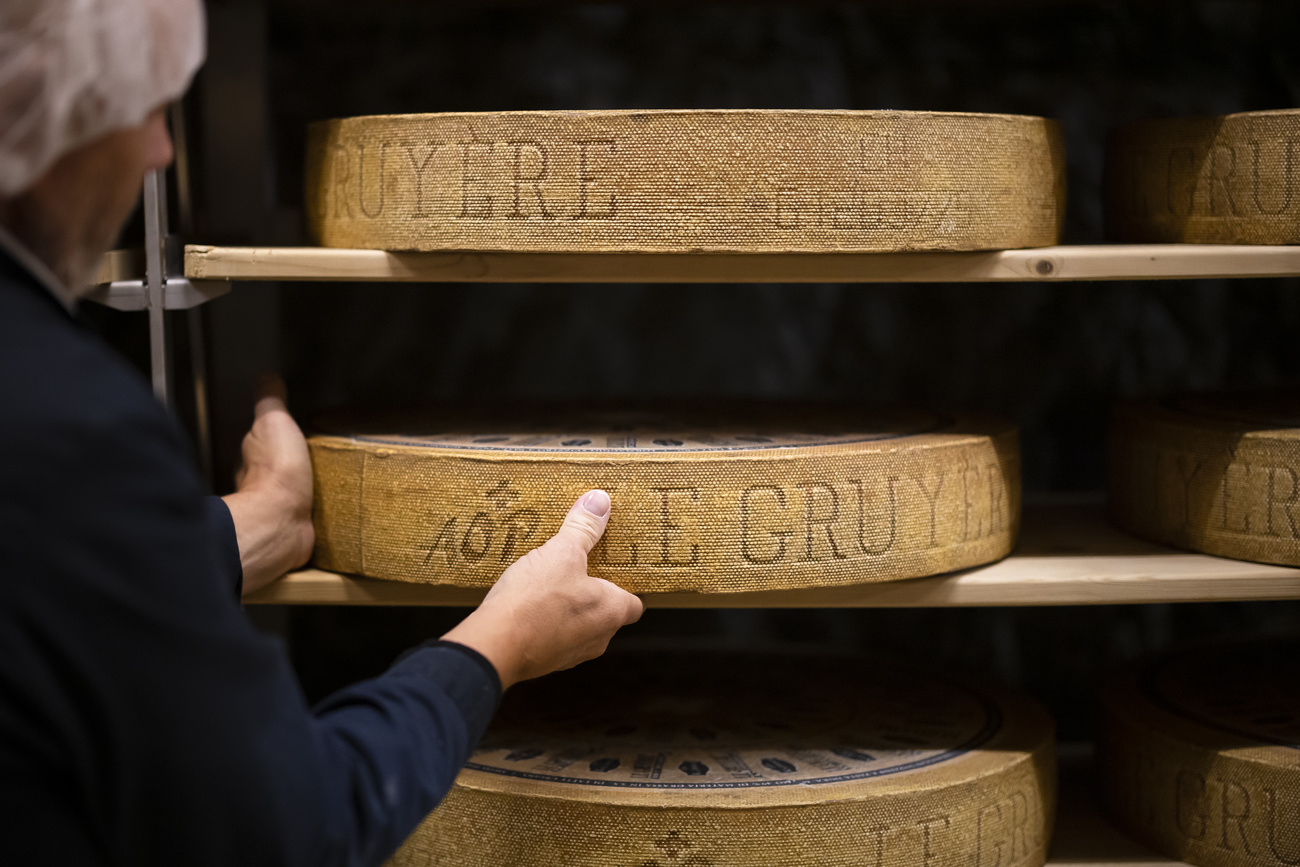
Switzerland must defend Gruyère cheese in trade agreements

Switzerland must do more to defend Gruyère cheese and other products that have a protected status in Switzerland, according to the Swiss House of Representatives.
The recent decision by a US court to allow the continued production and marketing of Gruyère cheese in the United States is a slap in the face for all those involved in the AOP (Protected Designation of Origin) Gruyère sector, said Jacques Nicolet, a member of the right-wing Swiss People’s Party (SVP), in parliament.
+ Why the US court angered Swiss cheesemakers
In March, a US court of appeals confirmed that the term gruyère is a common label for cheese and can’t be reserved for a type from a specific region, namely in Switzerland or France, on the US market.
This decision followed a legal battle that has been going on for several years between the consortium of Swiss and French cheesemakers from the region around the town of Gruyères in western Switzerland and an American organization active in the production and marketing of dairy products.
On Thursday, a majority (115 to 58) in the Swiss House of Representatives supported a motion from the SVP to push back on the ruling on Gruyère cheese. According to the motion, the Federal Council should demand that the recognition of Swiss AOP (protected designation of origin) be applied and respected in all future trade agreements.
Switzerland does not have a preferential trade agreement with the United States, nor is it in the process of negotiating one. Whether an AOP is considered worthy of protection or a generic label in the US is a matter for the US courts based on the principle of territoriality.
Switzerland is already striving to protect its AOP label in trade agreement negotiations. But the outcome of negotiations always depends on the ambitions of all parties, according to economics minister Guy Parmelin.
The motion now be taken up in the Swiss Senate.
This news story has been written and carefully fact-checked by an external editorial team. At SWI swissinfo.ch we select the most relevant news for an international audience and use automatic translation tools such as DeepL to translate it into English. Providing you with automatically translated news gives us the time to write more in-depth articles. You can find them here.
If you want to know more about how we work, have a look here, and if you have feedback on this news story please write to english@swissinfo.ch.

In compliance with the JTI standards
More: SWI swissinfo.ch certified by the Journalism Trust Initiative




























You can find an overview of ongoing debates with our journalists here . Please join us!
If you want to start a conversation about a topic raised in this article or want to report factual errors, email us at english@swissinfo.ch.